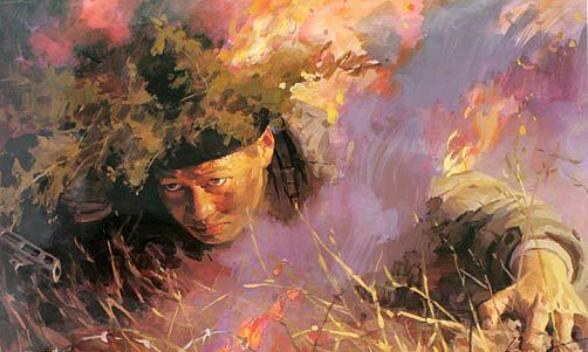Born in a village in Sichuan Province, Qiu Shaoyun (1931-1952) joined the People's Liberation Army in December 1949 and earned a reputation as a determined fighter in campaigns to wipe out bandits.
In March 1951 he joined the Chinese People's Volunteers Army to fight against U.S. in Korea. Part of a squad sent to ambush enemy forces near Kimhwa, on October 11, 1952, Qiu Shaoyun edged close to the enemy defenses using grass and twigs as camouflage. At noon the enemy threw a fire bomb that set fire to the grass near Qiu's position. Realizing that any sound or movement would give away the position of his comrades, Qiu endured the agonizing pain in silence and was burnt to death.
Thanks to his sacrifice, his squad won the ensuing battle. On November 6, 1952 Qiu Shaoyun was posthumously awarded a Special-Class Merit citation. His body was buried in the Cemetery of the Volunteers in Shenyang in March 1953.
On June 1 1953 Qiu was further honored as a "First-Class Hero of the Chinese People's Volunteers Army". The North Korean authorities also named him a "Hero of the Democratic People's Republic of Korea." The people of his hometown of Tongliang in Sichuan Province later erected a memorial in his honor.

